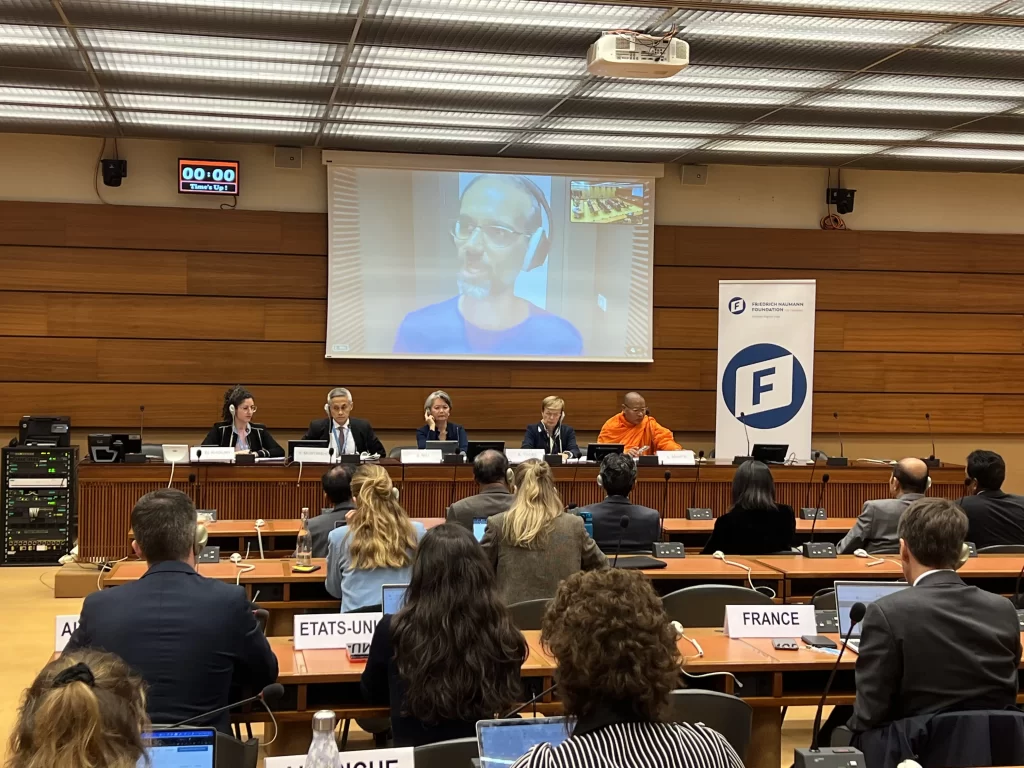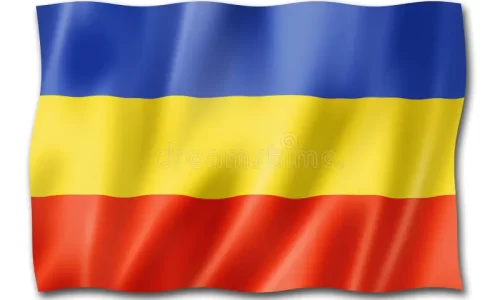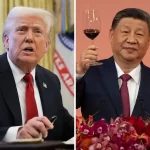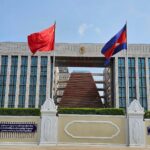Cambodia, once a nation of hope and resilience, is now rapidly sliding into an entrenched autocracy under Hun Manet’s regime.
The situation, which has steadily deteriorated since the dissolution of the Cambodia National Rescue Party in 2017, now demands close international attention to help restore democratic governance and protect human rights. As the United States veers towards increasingly isolationist policies, it is time for Europe to step up and fill this void.
Over the past several years, hundreds of activists and human rights defenders have been imprisoned, opposition and civil society leaders have been forced into exile, international NGOs have been pushed out of the country, and independent media outlets have been silenced.
The 2023 elections, organised without recognized opposition and widely condemned as sham exercises in legitimacy, have only deepened the nation’s slide into a hereditary dictatorship, replacing the long-ruling former Khmer Rouge senior commander Hun Sen with his son, Hun Manet.
These actions have not only dismantled Cambodia’s democratic institutions but also emboldened the regime in Phnom Penh to pursue its critics at home and abroad — as tragically exemplified by the assassination of former CNRP lawmaker Lim Kimya in Bangkok earlier this year.
The decision by the Trump administration to freeze USAID has left a gaping hole in many programmes in Southeast Asia, including Cambodia’s demining efforts. Coupled with the ongoing tariff war between the US and China, the US is steadily retreating, leaving the region open to China’s influence.
This could ultimately mean less scrutiny of cases of democratic backsliding, human rights abuses, and transnational repression by burgeoning autocracies.
The European Union — long a beacon of democratic values and human rights — has an opportunity to step forward with concrete measures to counter this alarming trend and defend Cambodia’s fledgling democracy.
A recent resolution by the European Parliament, which calls for a review of Cambodia’s tariff privileges under the Everything But Arms (EBA) scheme and sanctions against key figures in the regime, is an important first step. But there is still more to do.
Safety of civil society actors non-negotiable
In 2020, the EU made the commitment that “should there be no significant improvements, the EU stands ready to initiate the procedure for the temporary withdrawal of the remaining tariff preferences” for Cambodia. The situation has only worsened since.
The Commission must uphold its pledge from 2020 by fully suspending the EBA trade scheme for Cambodia. By suspending these privileges, the EU can send a clear message: economic cooperation is contingent upon respect for human rights and democratic governance.
This measure would underscore the principle that improving human rights and safeguarding civil society freedoms remain the basis for economic cooperation, trade and investment.
Targeted visa sanctions and asset freezes are also tools in the EU’s arsenal. In 2021, the EU imposed targeted sanctions on four Russian individuals for human rights abuses. They were accused of arbitrary arrests and detentions of opposition members, including Alexei Navalny and peaceful protesters, and the systematic repression of rights.
As similar tactics of arrest, exile, and intimidation are used by the elites within Cambodia, it is clear that those responsible for orchestrating Cambodia’s systematic erosion of democratic norms can, and must, be held accountable.
Imposing such sanctions under the EU Global Human Rights Sanctions Regime would not only deter further abuses but also prevent the laundering of ill-gotten gains through international financial channels.




